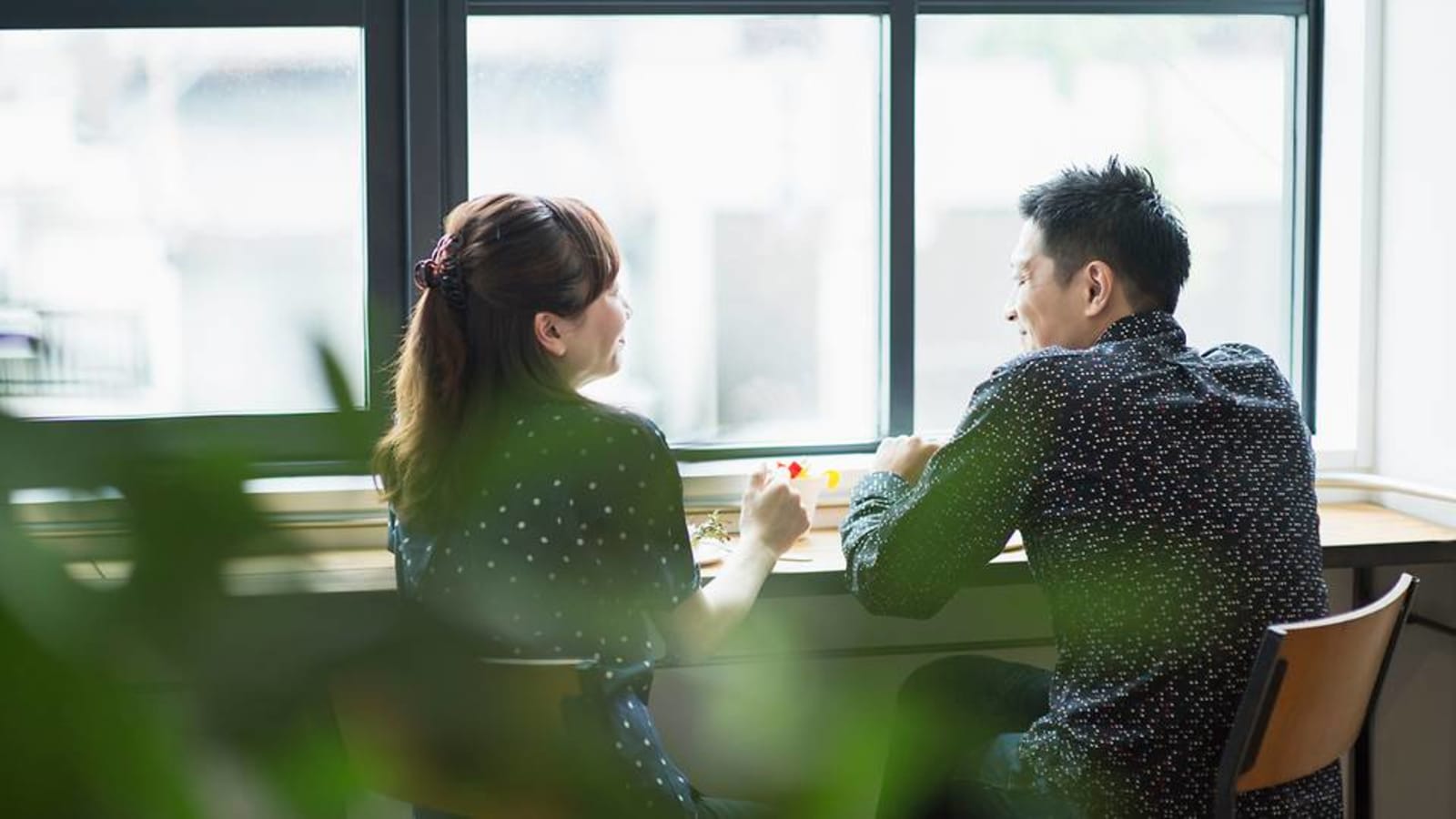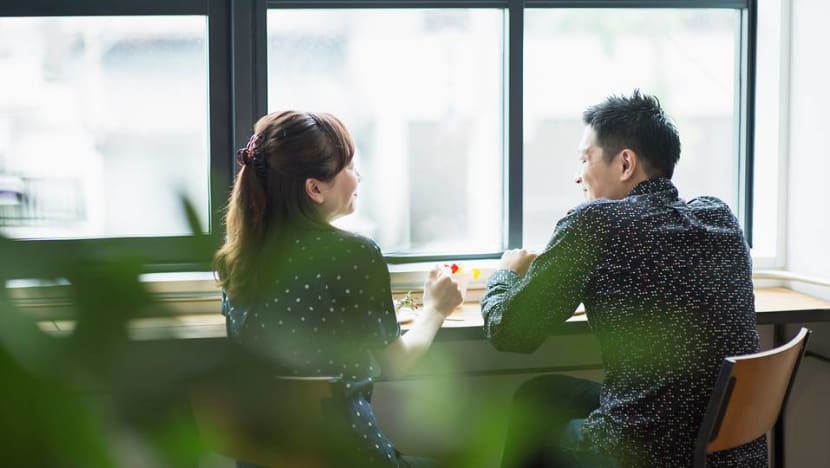
Advertisement
Focusing on platonic relationships instead of romantic rejection helps your self-confidence and relationship survive the initial pain, says Vanessa Chan.

SINGAPORE: When I confessed my feelings to one of my best friends, they turned me down. But that was also the first time they told me that they loved me (though as a friend). Oof.
Unwisely, I did make a second attempt, so it is on good authority that I say: Giving up isn’t easy.
I moved on soon after that, so we’re still very good friends. But we certainly would not be, had I followed the example of the man who sued a woman for S$3 million, for the emotional trauma he allegedly suffered from his feelings not being returned.
Granted, most people wouldn’t think of it as an option. Even under less extreme circumstances, being unable to accept a friend’s boundaries would no doubt damage ties.
MANY OF US DON’T ESCAPE THE FRIEND ZONE IN THE WAY WE HOPE
On some level, most of us can understand the humiliation, sadness and anxiety that accompany being rejected by a friend. In a University of Alabama study published last year, two thirds of surveyed 18- to 32-year-olds had attempted to convert a friendship to a romantic relationship.
The results? Twenty-nine per cent of those who initiated the move reported an impaired friendship after, while 25 per cent said it terminated the friendship.
LISTEN – Womankind: Finding love in the time of COVID-19: What does it take?
Researchers differentiated between initiators and responders, to see if their experiences of the friend zone phenomenon differed significantly. Initiators perceived greater romantic interest than responders did, which could explain why responders were four times more likely to report increased persistence from initiators after turning down them down.
This suggests that fools in love lack awareness of themselves and other people’s feelings. Considering the fact that romantic love shuts down judgment-making parts of the brain, this checks out.
Even if we do register our friend’s “no”, why is it so hard to face?
THE PAIN OF BEING REJECTED BY A CLOSE FRIEND
The scary thing about being turned down by a close friend, versus your third sorry-I’m-not-really-feeling-it Bumble date, is that this person has a good idea of your personality and history.
This was the person that listened patiently as I made completely unjustified pronouncements on people we both knew while waving Pontian noodles in the air.
There’s a real fear that, in the words of Ms Taylor Swift: “It’s me, hi, I’m the problem, it’s me”.
Stanford superstar psychologist Carol Dweck said as much, too: “Few things in life are more traumatic than being rejected by someone who knows you well”.
Rejection causes more psychic damage when we think it reveals something fundamental about ourselves. In response, men tend to react more aggressively, while women seek social support (and lower their standards).
The resulting insecurity and threat to our sense of self can have a longer shelf life than your average romantic rejection, true. But it still doesn’t make it your friend’s fault or responsibility.
Like your Bumble date, they just weren’t feeling it either.
WHY WE CAN’T LET GO OF THE FRIENDS-TO-LOVERS TROPE
There’s no shame in dreaming about your turn to post the social media caption “I married my best friend”.
A Canada study published in 2021 found that two-thirds of couples start out as friends. A 2014 UK survey found that friendship had a significant influence on conjugal bliss: People who married their best friends are twice as happy. Who doesn’t want that?
But being fixated on becoming partners with that one friend who “just gets you” doesn’t happen in a cultural vacuum.
Social historian Stephanie Coontz said true friendship only really became a part of marriage in America during the 1990s, owing to greater gender equality.
Esther Perel of “relational intelligence” vogue said this has gone too far: “We still want all the same things that traditional marriage was about – family life, companionship, economic support and social status. But now (we) also want (our partners) to be a best friend, a trusted confidant and a passionate lover to boot.
“What we have created in a romantic ambition is one person to give us what once an entire village used to provide.”
If the friend zone is purgatory, the idealisation of “The One” makes romantic coupling feel like heaven; ending up in any other place is hell. But it doesn’t have to be.
EXITING THE FRIEND ZONE
Contrary to popular understanding, “let’s stay friends” doesn’t put you in the friend zone, it takes you out of it. In the University of Alabama study mentioned earlier, about a third of initiators reported maintained their friendships. That, to me, is a successful exit.
To leave the ‘zone, perhaps we need to board the ‘ship. In her book, Friendship: The Evolution, Biology, and Extraordinary Power of Life’s Fundamental Bond, Lydia Denworth makes the case for friendships being the “template for all (our) relationships”, with profound impact on our ability to thrive across our lifespan. They are stable, supportive, and on average, more enduring.
American researchers have observed that men in particular are suffering from a “friendship recession”. Since 1990, the percentage of men without any close friends rose from 3 per cent to 15 per cent in the US. To make matters worse, men report being less emotionally connected to their friends, in contrast to women.
I think it’s time to abandon the idea of friendship being an undesirable outcome, in hopes of saving more of them from the perils of romantic attraction.
PLATONIC LOVE ISN’T ANY LESS SUBSTANTIAL OR IMPORTANT
Many factors influence the likelihood of a friendship surviving a thwarted romantic advance. The desire to re-enter a friendship, for one, has to be shared. The strength of the underlying relationship matters as well.
I’m thankful that both were present in my case.
When my friend told me they loved me, the unspoken “not in that way” was hard to bear at first. But it was also incredibly healing. Choosing not to qualify their affection was a statement. That the love they did have for me wasn’t any less substantial or important because of its platonic nature.
Being assured of the value of our friendship made me unashamed of having tried. I felt secure enough to give them the space needed for the rupture to heal.
It taught me this: It’s only our assumptions that make romantic rejection feel like the end of love, that convinces you you’re unlovable. Staying friends was never the lesser option.
Vanessa Chan is a graduating Arts Business Management student from Ngee Ann Polytechnic.
LISTEN – Heart of the Matter: Why aren’t young Singaporeans dating?


